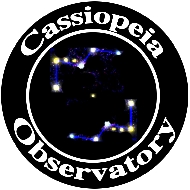Some Barnard Objects imaging
Posted: 4 November 2023
|
Open: Friday, 3 November 2023, 1805 MST Temperature: 80°F |
Session: 1929 Conditions: Mostly clear |
Equipment:
12" f/8 LX600 w/StarLock
2" 24mm UWA eyepiece
2" 4X Powermate
2" 2X Powermate
Camera:
D850 DSLR
1810 MST: LX600 ON, StarLock OFF, High Precision OFF.
Viewed Saturn, 102X.
Tweaked a finderscope alignment for imaging Saturn at high magnification. Then prepared the D850 DSLR for imaging and mounted the D850 at prime focus + 4X Powermate + 2X Powermate. I wanted to test my old Nikon DG-2 Magnifier (which I used on my old Nikon D70, D7000, and D7200 DSLRs) with my Nikon D850 DSLR. I had recently purchased a Nikon DK-18 Eyepiece Adapter to allow the DG-2 to be attached to the D850, as seen here.
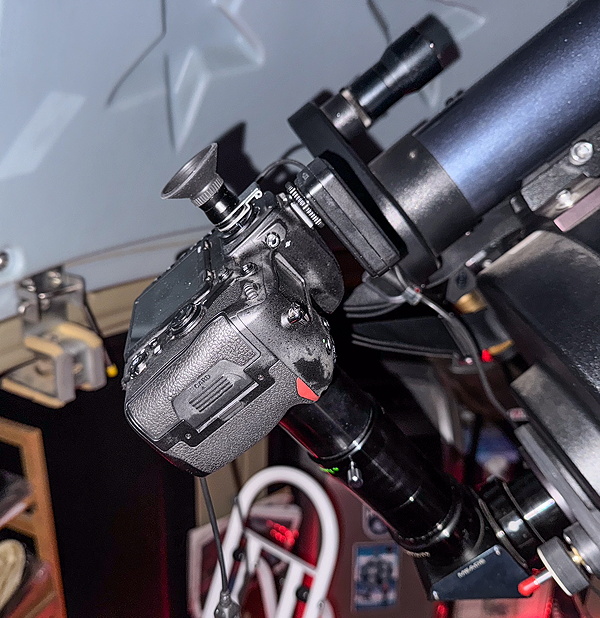
Unfortunately, Saturn was too faint at this high magnification for the magnifier to be useful for focusing. I ended up using the Live View screen to focus the planet. However, this won't be a problem for my main reason for using the magnifier with the D850 DSLR and that's to focus the Sun during next April's Total Solar Eclipse.
This is a single frame image of Saturn at this high magnification, 1/10sec, ISO 3200.
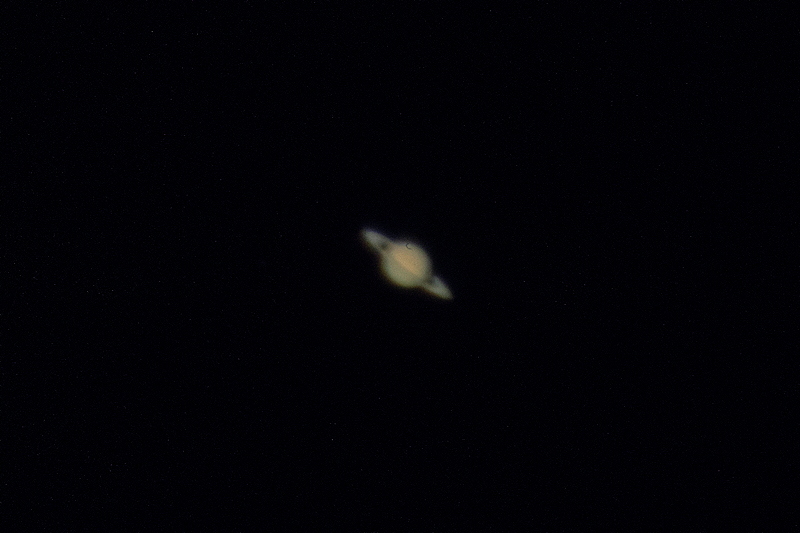
Next, I SYNCed on the star Altair to resume viewing and imaging Barnard Objects (dark nebulae).
1851 MST: High Precision ON.
I tried to view some Barnard Objects, 102X, but I could not be certain I was seeing these: B316, B319, B124. B125, B126, B324, and B325.
Mounted the D850 DSLR at prime focus, focused on Altair, locked the 12" telescope primary mirror, and slewed to B316.
1915 MST: StarLock ON.
I then began doing StarLock autoguided images (2 minutes, ISO 3200). Unfortunately, due to a pointing error, only two images showed Barnard Objects that I could identify.
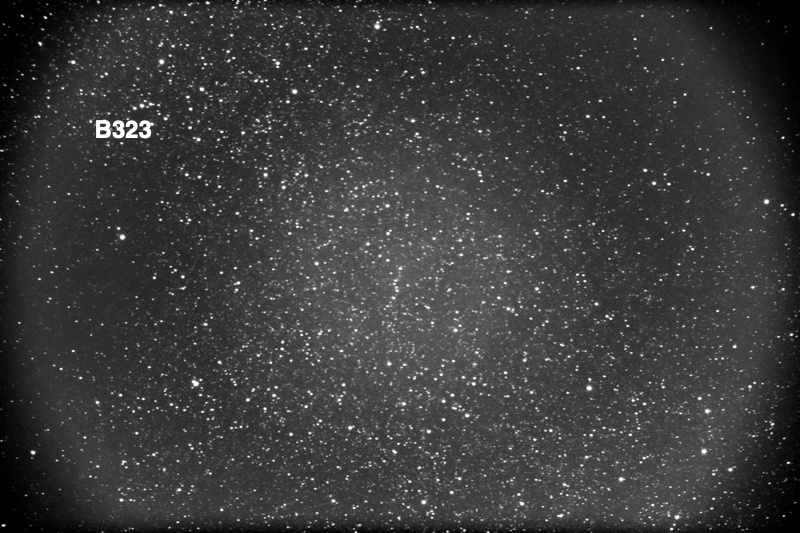
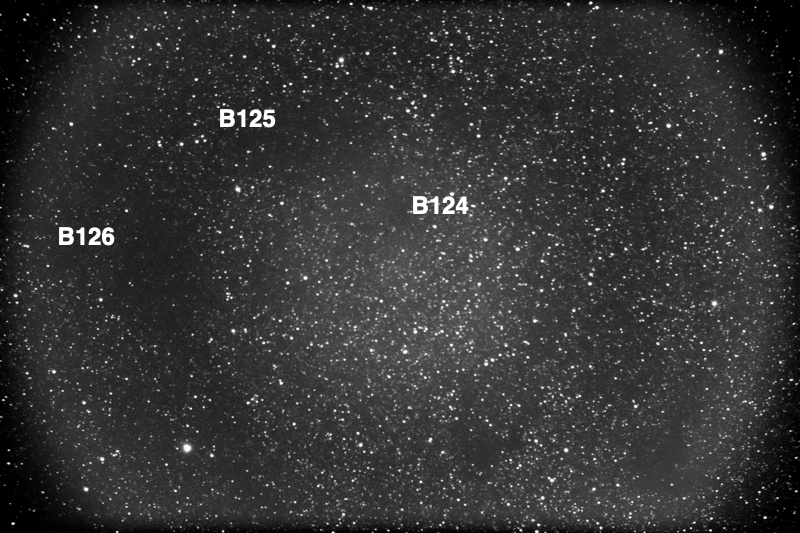
1944 MST: StarLock OFF, High Precision OFF.
I plan to switch to using a focal reducer to help reduce the pointing error and better position the High Precision alignment star beginning on my next session.
Viewed Jupiter and three moons, 102X.
1956 MST: LX600 OFF.
2004 MST: Took a Sky Quality reading and reported the result to Globe at Night.
|
Close: Friday, 3 November 2023, 2009 MST Temperature: 63°F |
Session Length: 2h 04m Conditions: Clear, SQM 20.83 |
Comments are welcome using Email. Please read the Email Etiquette guidance.
Cassiopeia Observatory Home Page
Copyright ©2023 Michael L. Weasner / mweasner@mac.com.
URL = http://www.weasner.com/co/Reports/2023/11/04/index.html
